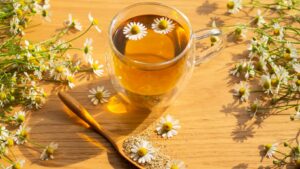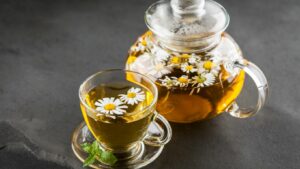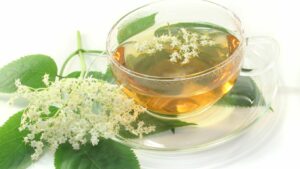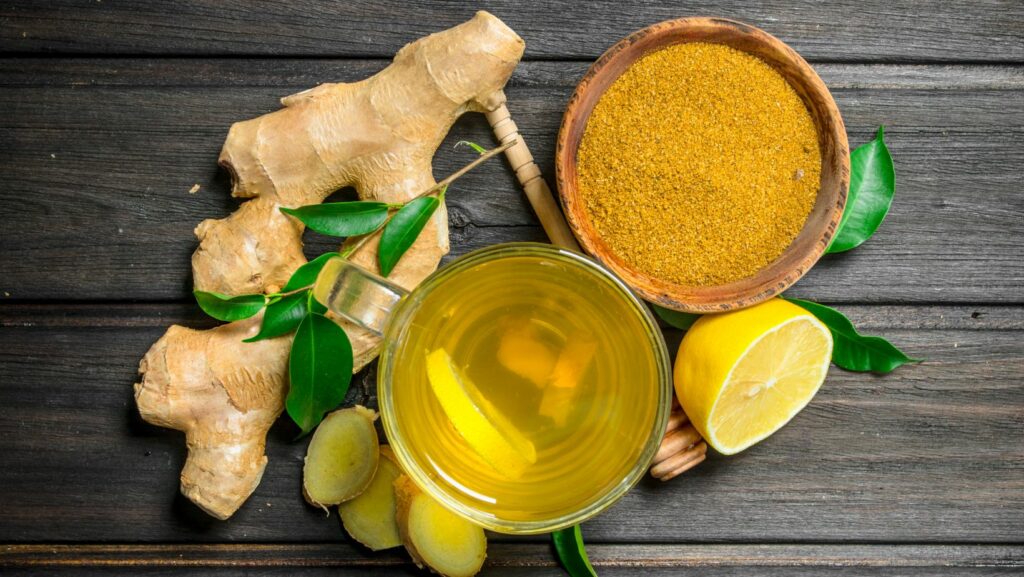In a world where natural remedies are gaining popularity, herbal treatments for fever offer a gentle yet effective alternative to over-the-counter medications. Fever, a common symptom of various illnesses, often leaves individuals feeling drained and uncomfortable. While conventional medicine provides relief, many are turning to age-old herbal solutions that have been trusted for generations.
Herbs like ginger, basil, and elderflower are celebrated for their fever-reducing properties. These natural remedies not only help lower body temperature but also support the immune system, promoting overall well-being. As people become more health-conscious, the shift towards herbal remedies reflects a growing desire for holistic approaches to health.
Understanding Fever
 Fever is the body’s natural response to infection. When pathogens like bacteria or viruses invade, the immune system raises the body temperature to create an inhospitable environment for these invaders. While normal body temperature averages 98.6°F (37°C), fever typically involves a temporary increase, generally above 100.4°F (38°C).
Fever is the body’s natural response to infection. When pathogens like bacteria or viruses invade, the immune system raises the body temperature to create an inhospitable environment for these invaders. While normal body temperature averages 98.6°F (37°C), fever typically involves a temporary increase, generally above 100.4°F (38°C).
Medical professionals classify fever based on severity. A mild fever usually measures between 100.4°F (38°C) and 102°F (38.9°C), while moderate fever ranges from 102°F (38.9°C) to 104°F (40°C). High fever exceeds 104°F (40°C), requiring medical evaluation.
Although uncomfortable, fever often serves as an indicator of an underlying issue. Aside from infection, causes include inflammation, heat exhaustion, and autoimmune disorders. Understanding these causes aids in selecting appropriate herbal remedies to alleviate symptoms and promote comfort.
Herbal Remedies For Fever
Certain herbs have gained recognition for their ability to reduce fever and support the immune system. These natural alternatives offer gentle relief and promote healing.
Ginger
 Ginger contains bioactive compounds with anti-inflammatory properties. It helps reduce fever by improving circulation and promoting sweating. To prepare, steep sliced ginger in boiling water for 10 minutes. Drinking this tea several times daily can aid in fever reduction.
Ginger contains bioactive compounds with anti-inflammatory properties. It helps reduce fever by improving circulation and promoting sweating. To prepare, steep sliced ginger in boiling water for 10 minutes. Drinking this tea several times daily can aid in fever reduction.
Chamomile
Chamomile is known for its calming and anti-inflammatory effects. It can help lower fever and reduce discomfort. Brew chamomile tea by steeping dried flowers in hot water for 5 minutes. Consuming this herbal tea can assist in soothing fever symptoms.
Echinacea
Echinacea is popular for its immune-boosting properties. It strengthens the body’s defenses, helping to combat the underlying causes of fever. Use echinacea in capsule form or make a tincture by soaking the roots in alcohol. Regular intake may enhance the immune response.
Peppermint
Peppermint offers cooling effects through its menthol content, which can help decrease body temperature. It provides relief from fever-related headaches. Prepare peppermint tea by steeping leaves in boiling water for 7 minutes. Inhaling the aroma also adds soothing benefits.
Elderflower
Elderflower acts as a diaphoretic, promoting sweating and aiding in fever reduction. It also has antiviral properties that support recovery. Create an infusion by steeping elderflowers in hot water for 15 minutes. Consuming this drink can assist in relieving fever and cold symptoms.
How To Use Herbal Remedies Safely
Ensuring safe use of herbal remedies for fever involves understanding proper dosage and being aware of any potential side effects. Appropriate knowledge can ensure effective symptom relief while minimizing risks.
Dosage Guidelines
 When using herbal remedies, correct dosage is crucial. Users must follow general recommendations or consult a healthcare professional for specific guidance. Ginger, often taken as tea, typically involves steeping one to two teaspoons of fresh root in hot water for 10 minutes. For basil, three to four leaves can be boiled, and consumed as an infusion every two hours. Chamomile should be taken as a mild tea, with one to two teaspoons of dried flowers brewed for 5 minutes. Elderflower can be used in similar fashion, with a recommended dosage of two teaspoons of dried flowers in hot water.
When using herbal remedies, correct dosage is crucial. Users must follow general recommendations or consult a healthcare professional for specific guidance. Ginger, often taken as tea, typically involves steeping one to two teaspoons of fresh root in hot water for 10 minutes. For basil, three to four leaves can be boiled, and consumed as an infusion every two hours. Chamomile should be taken as a mild tea, with one to two teaspoons of dried flowers brewed for 5 minutes. Elderflower can be used in similar fashion, with a recommended dosage of two teaspoons of dried flowers in hot water.
Possible Side Effects
While herbal remedies offer natural benefits, they can also cause side effects. Ginger may lead to heartburn or digestive issues when consumed in large amounts. Basil might cause low blood pressure or interact with anticoagulants. Chamomile can lead to drowsiness or allergic reactions in some cases. Excessive use of echinacea might cause digestive upset, while peppermint may lead to skin irritation if applied topically. Elderflower, generally safe, should be avoided in raw form to prevent toxicity.

